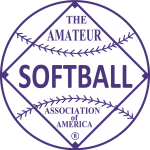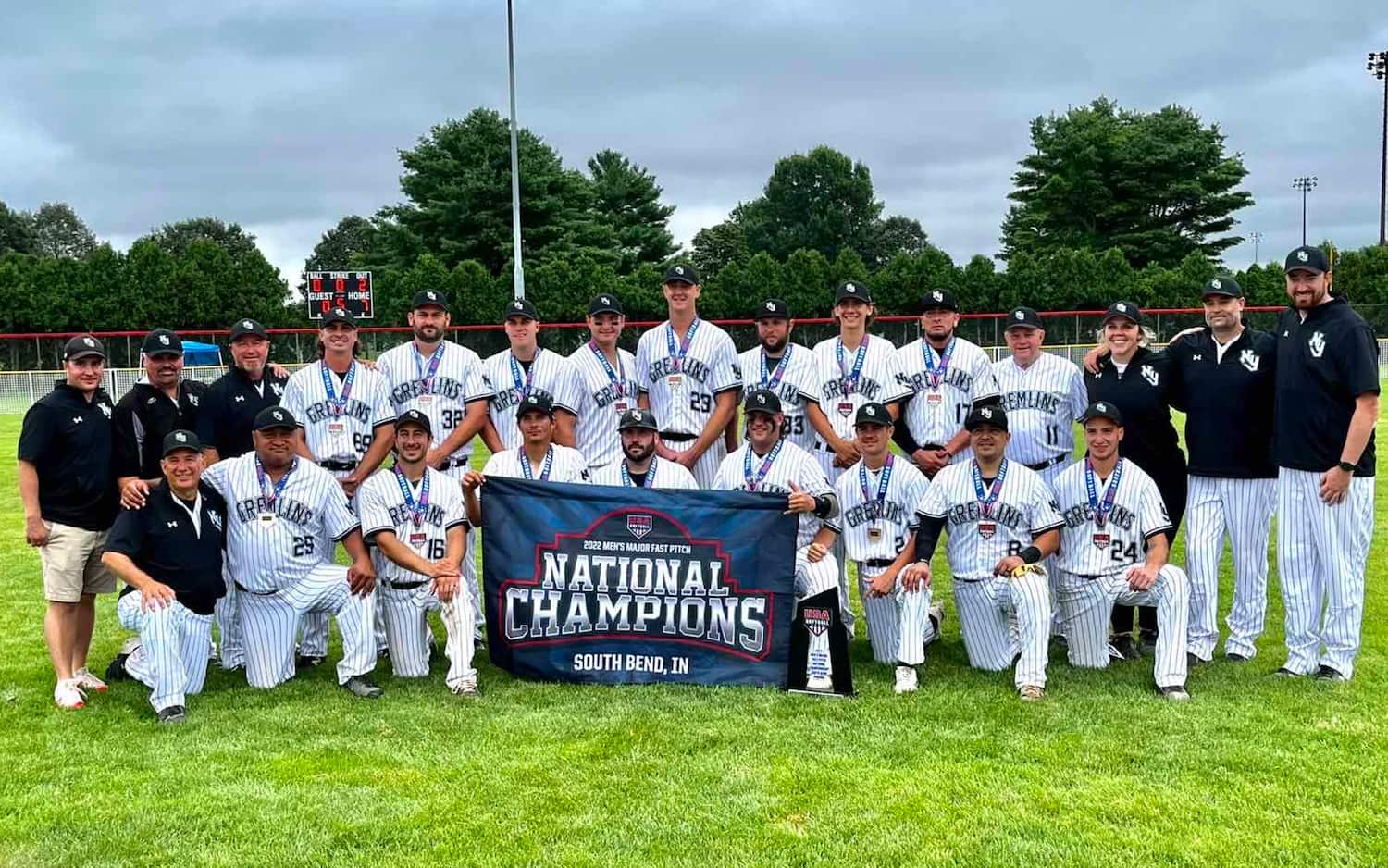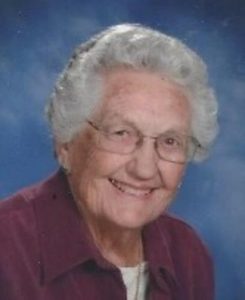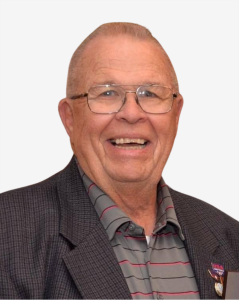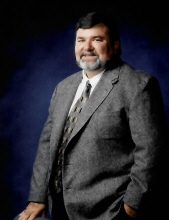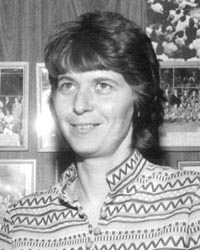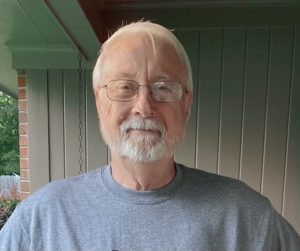The National Softball Hall of Fame is the ultimate goal for any player, coach, umpire or administrator who aspire to greatness in the sport. With over 400 inductees, the National Softball Hall of Fame is among the most difficult sports halls in the nation in which to gain membership.
Take a moment to browse through the Hall of Fame section and learn more about some of the sport’s greatest athletes and their accomplishments. If you get a chance to visit us in person while in Oklahoma City, please observe these hours of operation:
National Softball Hall of Fame and Museum
2801 Northeast 50th Street
Oklahoma City, OK 73111
(405) 424-5266
Monday-Friday: 8:30 a.m.-4:30 p.m.
Saturday-Sunday: Check USA Softball Hall of Fame Complex for weekend hours
The Hall of Fame and Museum does not charge, but donations are greatly appreciated and accepted. Your donations help keep this history of softball alive through exhibit updates, upkeep and restoration projects.
Link to Video of the National Softball Hall of Fame
The National Softball Hall of Fame and Museum was established in 1957. Once USA Softball moved to Oklahoma City January 1, 1966 after having its offices in Newark, NJ, the decision to establish a Hall of Fame Building in Oklahoma City was made in January of 1965. Groundbreaking ceremonies for the Hall of Fame were held December 19, 1970 in Oklahoma City. The late John Nagy, former Cleveland Metro commissioner, was USA Softball President at that time. Hall of Famers Harold (Shifty) Gears and Carolyn Thome Hart were among those attending the ceremonies.
The National Softball Hall of Fame was officially dedicated May 26, 1973 in Oklahoma City. The building was opened to the public July 1, 1973.
The first of two additions to the National Softball Hall of Fame/USA Softball Headquarters was started July 5, 1976 and completed July 13, 1977 for an additional 4,350 square feet of space. Dedication ceremonies for the expansion were held July 23, 1977. Counting the National Softball Hall of Fame/USA Softball Headquarters and the USA Softball Hall of Fame Complex, there is 28,406 square feet of space.
A second expansion was added July of 1980 for an additional 5,182 square feet of space, with total footage 18,140 square feet of space.
The National Softball Hall of Fame and Museum has over 400 members with two categories of membership: players and non players. Within the player category, there are five categories: Men’s/Women’s Fast Pitch, Men’s/Women’s Slow Pitch and Modified Pitch. Within the non player category, there are five different divisions one can be nominated in: Commissioner, Meritorious Service, Umpire, Managers and Sponsors. A nominee needs 75 percent (nine votes) of the votes cast by the 12 member Hall of Fame Committee to be elected. Annual inductions are held at the USA Softball Annual Meeting.
Through our vast collection of artifacts, the National Softball Hall of Fame and Museum strives to educate the public about softball’s rich history. Your support is critical to these efforts.
The Hall of Fame Donation Fund was established to ensure that the National Softball Hall of Fame has a future and is committed to educating people about the great former players and non players and the role they played in the development of the sport.
Your tax-deductible contribution helps the National Softball Hall of Fame continue its mission of educating, collecting and honoring as well as the preservation of the history of softball, the maintaining of present exhibits and purchase of new exhibits and possible expansion of the Hall of Fame building.
Click here to make a donation
Due to the volume of offers we receive, we cannot accept the donation of an artifact without a completed artifact description form. This form must be filled out and mailed or emailed to USA Softball. Please see our Mission Statement and Collections Management Policy to see what types of objects we will and will not accept. Once we have received your form, our staff will evaluate the object’s potential and will be in contact with you as to whether or not we will be able to accept the donation. If your object is chosen, the donated material will be recommended to the Executive Director for consideration. Following the meeting a staff member will contact you regarding the next steps.
Click here for the Donor Questionnaire Form
NATIONAL SOFTBALL HALL OF FAME CLASS OF 2020
During the 2020 season there were no inductions were made due to COVID-19.
NATIONAL SOFTBALL HALL OF FAME CLASS OF 2021
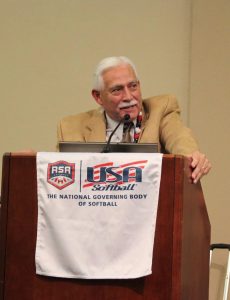
Phil Gutierrez
A career that spanned 44 years with USA Softball, Phil Gutierrez has played a significant role on numerous lives through the sport of softball. Gutierrez began his career with USA Softball as an umpire in 1975, finding success at the high school, collegiate and ASA National level. He has umpired four Men’s Major National Championships, receiving phenomenal rating for each of them. Starting in 1989, Gutierrez began his Umpire in Chief (UIC) career when he was appointed as SoCal North San Diego District UIC, serving as Deputy State UIC. A 2006 umpire Inductee to the San Diego County Sports Officials Hall of Fame as a Softball Umpire, Gutierrez developed, maintained, and continually improved an Umpire Training Program renowned throughout the country. His passion continued beyond the field with the appointment to Commissioner of Southern California in 2007 where he led SoCal to become the top association annually for team, individual and umpire registrations. While serving as a Council Member, Gutierrez co-chaired and chaired several committees including the chair of the newly formed Communications Committee. In 2011, he was elected as President of USA Softball, representing USA Softball at International Softball Federation (ISF) meetings and events. His influence, dedication and ambitious nature was not only felt locally, but nationally and internationally.
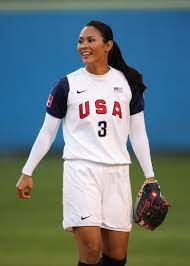
Lovieanne Jung
An Olympic Gold and Silver Medalist as well as a two-time Pan American Games Gold Medalist and World Champion, Lovieanne Jung was one of the best and smartest infielders to ever play the game. As an eight-year team member of the United States Women’s National Team, Jung served as ‘quarterback’ of the U.S. defense, calling all coverages and positioning the defense for opposing offenses. Her tremendous skill set combined with her knowledge of the game allowed her to be the most proactive player on the field, always seeing things before they occurred in the game. Jung was a part of the 2004 U.S. Olympic Softball Team, dubbed “The Real Dream Team”, that dominated their way to the Gold Medal in the Athens Olympic Games and earned a spot in the U.S. Olympic Hall of Fame. Jung played the role of a true leader, demonstrating an admirable work ethic and always being an accountable teammate. Dedication, passion, and hard work are only a few of Jung’s championship traits, though, as service and taking care of people are both things she partakes in today. Jung currently works as a firefighter for the Riverside Fire Department while continuing to serve the sport of softball as an Elite Representative on the Women’s Selection Committee.
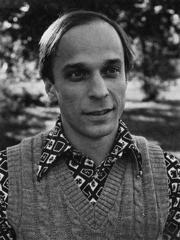
Terry Muck
The resume of Fast Pitch Softball player Terry Muck clearly reveals he was one of the best of his era. He was barely 5’6 inches tall and perhaps weighed 150 pounds, but Muck was a mountain of a man as a fast pitch softball player. A five-time All-American and a nine-year member of the legendary Home Savings team, Muck and his teammates made 11 ASA National Championship appearances. Muck was the premier middle infielder of his time with a range that allowed few balls through the infield. Known for his small size and impressive speed, Muck encompassed the perfect attributes for a leadoff hitter while providing power that allowed him to occasionally shift to 3-hole in the Saver lineup. In addition to his All-American honors, Muck was named the 1973 national leading hitter while also earning a feat as the 1976 national homerun leader. Aside from his outstanding skill as a softball player, Muck was better known as an outstanding individual with great integrity and character.
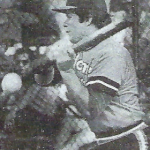
Bill Pfeiffer
A 15-year member of the Home Savings team in Aurora, Illinois, Bill Pfeiffer helped lead his squad to 13 ASA National Championship appearances. Pfeiffer was also a member of the USA Softball Men’s National team that earned a Silver Medal at the first-ever Pan American Games in San Juan, Puerto Rico. Additionally, he was a member of the USA Softball Men’s National team that won a silver medal at the inaugural Pan American Games in San Juan, Puerto Rico and earned multiple All-American honors.
Bill was an eight-time All-American. 1979 Pan Am Games Silver Medalist. Four time runner up at Men’s Major Fast Pitch Nationals. Three-time US Sports Festival participant.
After retiring from softball, Pfeiffer became co-founder of the Aurora Fastpitch Softball Association, which he currently still serves in.
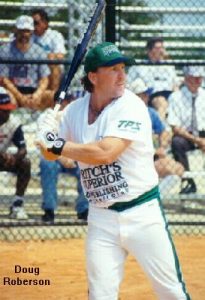
Doug Roberson
One of the best outfielders of all time, Doug Roberson is considered to have had one of the strongest arms ever seen in slow pitch softball. Known as an absolute powerhouse on both sides of the field, Roberson slugged over 2,000 homeruns in his 14-year playing career, totaling a season high of 672 in his 1987 season. In addition to hitting the long ball, Roberson was an RBI machine, averaging around 20 RBIs a game. Roberson earned ASA accolades 11 times during his storied career, including Outstanding Defensive Player at the 1990 ASA Super Nationals. He was a member of six ASA Super National Championships, two National MVP awards, two National Defensive MVP awards and 27 National/World Championships. While his accomplishments speak for themselves, many refer to Roberson as a true ambassador of the game.
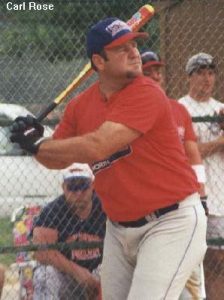
Carl Rose
Carl Rose is synonymous with homerun, totaling over 2,300 long balls throughout his playing career –– a feat that earned him eight All-American selections. A two-time batting leader and three-time homerun leader, Rose became one of few players in history to lead the country in both categories with a .751 batting average and 240 homeruns during his 1991 season. With a playing career that spanned over 15 years, Rose collected 20 All-World Selections with two National MVP awards and one Defensive MVP award. Aside from his dominance on the field, Rose was an unselfish teammate that was well-known and well-liked on and off the field. Following his storied slow pitch softball career, Rose’s legendary power at the plate landed him a signature bat, the Carl Rose Lighthouse Bat –– a Worth best seller.
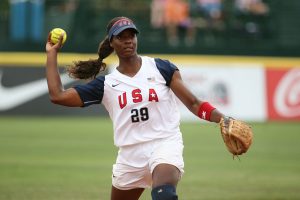
Natasha Watley
One of the most powerful athletes to ever play our sport, Natasha Watley embodies every characteristic of a USA Softball Hall of Famer. A career with the United States Women’s National Team that spanned nine years, Watley became an immediate gamechanger for Team USA. With the ability to hit for power and average while also using her speed in the short game, Watley was the true definition of a triple threat, making her one of the most feared hitters for any defense. In addition to her offensive dominance, Watley shined as an All-American short stop with a range that allowed few balls to reach the outfield. As a member of the storied 2004 Olympic Softball Team that dominated at the Athens Olympic Games, Watley and her teammates were inducted into the U.S. Olympic Hall of Fame. With an Olympic Gold and Silver Medal, three World Championship titles and two Pan American Games Gold Medals, Watley’s accomplishments speak for themselves –– but it was her humility, class, pride and passion for the game that set her apart. After retiring from the sport in 2010, Watley continues to be an inspiration and leader in her work with the Natasha Watley Foundation bringing her knowledge, passion, and hope to the next generation of young ladies. Watley also continues to give back to the sport through motivational speaking and coaching.
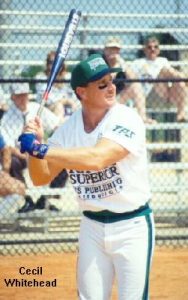
Cecil Whitehead
When you talk about slow pitch players in the game of softball, Cecil Whitehead is one of the names that comes to mind. With a playing career that spanned 14 years, Whitehead is known to be one of the top five outfielders of all time. A six-time All-American, Whitehead was a member of two Super National Championships, two Major National Championships and four Super National Runner-ups. In addition to his All-American honors, Whitehead garnered 25 All-World Selections with three National MVP awards and 22 National/World Championships. A member of the Ritch’s-Superior squad, Whitehead helped claim 10 of 12 Grand Slam titles as well as 31 championships in three years while averaging a .651 batting average with 258 homeruns. Statistics don’t lie, which is why many consider Whitehead to be in the Top 5 of all-time greatest slow pitch softball players in the history of the sport.
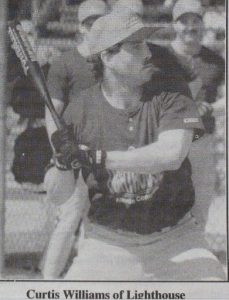
Curtis Williams
Curtis Williams played the highest classification of softball for over 30 years, earning his first All-American award in 1977 and his last in 2000, the longest span between such awards in softball history. A 13-time All-American selection, Williams was a member of 10 National Championship titles throughout his storied playing career. In addition to his All-American honors, Williams was also awarded MVP of the 1982 Smoky Mountain Classic. Williams slugged an impressive .880 batting average, a feat that named him the 1988 Men’s Major Slow Pitch batting leader. His continued dominance in the game helped earn him 20 All-World selections with three National Defensive MVP awards.
NATIONAL SOFTBALL HALL OF FAME CLASS OF 2022
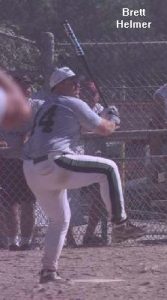
Brett Helmer
When you hear the name Brett Helmer, the first thing you think of is Men’s Slow Pitch. With a playing career that spans 20-plus years, Helmer is known to be one of the most feared hitters in the game. A 16-time All-American, including eight in the Men’s Class A division, six in the Men’s Supers division and two in the Men’s Major division, the offensive slugger was a member of seven National Championship teams while earning four titles in the home run leader category, one title in the batting leader category and one Most-Valuable-Player selection. In addition to his National Championship accolades, Helmer was a member of eight USA Softball Men’s Slow Pitch National Team rosters that competed in the international Border Battle event where he accumulated a .786 batting average, 10 home runs, 25 RBI and 19 runs scored. His contributions in the Slow Pitch game continue to live on as he enters his fourth-straight year as the Head Coach for the USA Softball Men’s Slow Pitch National Team.
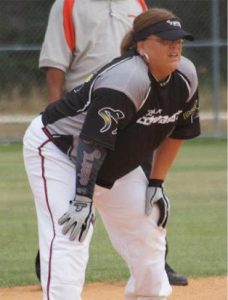
Christan Dowling
A staple on the USA Softball Women’s Slow Pitch National Team since its inception in 2017, the late-Christan Dowling was a mainstay in the U.S. lineup as one of the most impressive hitters in the game. Through her five appearances on the Team USA Border Battle roster, the offensive powerhouse totaled a .529 batting average, seven home runs, 21 RBI and 13 runs scored while being named the 2017 USA Softball Female Athlete of the Year following her dominating performance in the inaugural Border Battle event where she led the team with two home runs, five RBI and a 2.000 slugging percentage. In addition to her international experience, Dowling was a standout in the USA Softball Women’s Open division with 12 First-Team All-American selections, one Most-Valuable-Player selection, nine home run leader titles and six batting leader titles. Adding to her overall success, she was also a member of 10 National Championship squads during her storied playing career. It’s been said that the only thing more impressive than Dowling’s swing was her true passion and dedication to the game.
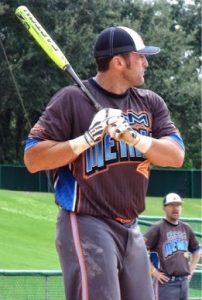
Rusty Bumgardner
Between 1994-2008, Rusty Bumgardner played for some of the top Men’s Slow Pitch teams in the country. A nine-time USA Softball All-American, Bumgardner helped three different squads to a National Championship title including Team TPS (2000), Long Haul/Taylor/TPS (2001, 2002) and Hague/Resmondo/Sunbelt (2003). He was also a member of three USA Softball Men’s Slow Pitch National Team Border Battle rosters where he totaled an .800 batting average, three home runs and 14 RBI. Known for his versatility in the field, Bumgardner encompassed the skills to shine at various infield positions throughout his career while proving to be a consistent tough out at the plate.
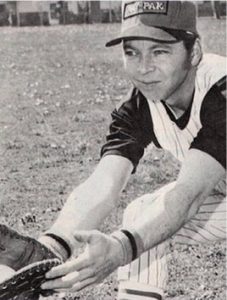
George Nokes
An all-around exceptional player both offensively and defensively, George Nokes radiated a dedication and respect for the game that was contagious to all who surrounded him. Nokes was considered to be one of the finest defensive first basemen to ever play the game, limiting base hits through the right side with his vacuum-of-a-glove while also digging any ball out of the dirt with ease. A three-time USA Softball All-American, Nokes participated in 11 Men’s Major Fast Pitch National Championships while leading the Peterbilt Western to a Championship title in 1980. Additionally, he was a member of the USA Softball Men’s Fast Pitch National Team World Cup roster in 1981. Throughout his storied career, Nokes was always one to represent the U.S. and USA Softball with a standard of unparalleled excellence.
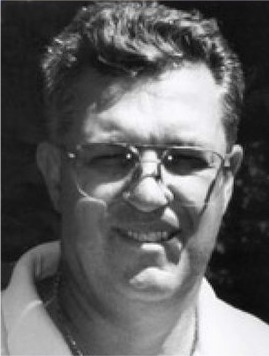
Jeff Peck
Jeff Peck demonstrates an abundance of athletic ability, exceptional leadership skills and a love for the sport of softball that has placed him among the best in the game. A key contributor to the success of the Demonstrated McArdle Softball Club, Peck helped lead his squad to the 1979 National Championship title while being named Most-Valuable-Player. He totaled three All-American selections throughout his career in addition to representing the U.S. at the 1980 ISF World Championship where Team USA claimed the gold medal. Peck’s exceptional hitting ability was vital to the success of the many teams he was a part of during his twenty-year playing career while his leadership on the field left a lasting effect on his teammates and opponents across the U.S.
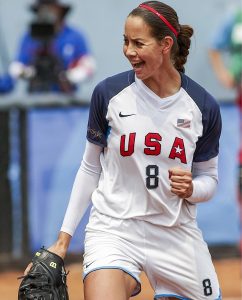
Cat Osterman
With the ability to speak for themselves, the astonishing accolades Team USA veteran Cat Osterman achieved during her playing career are among the highest in the game. A three-time Olympic medalist, Osterman helped lead the 2004 U.S. Olympic Softball Team – later dubbed “The Real Dream Team” – to the most dominant Olympic campaign in the sport of softball where the U.S. claimed its third-straight Olympic medal. She later returned to the Olympic stage in 2008 and 2020 where Team USA earned consecutive silver medal finishes. The University of Texas alum helped the U.S. to three Pan American Games gold medals and two World Championship gold medals throughout her 13-year career with the USA Softball Women’s National Team while also leading her collegiate program to three NCAA Division I Women’s College World Series appearances. A threat in the circle for many years, Osterman is the only three-time recipient of the USA Softball Collegiate Player of the Year award while additional honors include being named the 2004 Women’s Sports Foundation Athlete of the Year and 2005 & 2006 ESPY Top Collegiate Female Athlete and Honda Award Winner for softball. A true cornerstone of the USA Softball Women’s National Team program, Osterman’s resume and passion for growing the game across all levels has made her one of the sport’s most influential advocates.
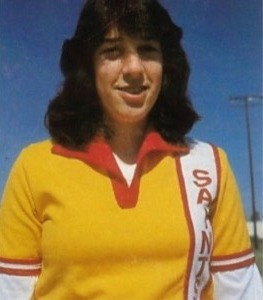
Debbie Doom
A three-time NCAA Division I National Champion with the UCLA Bruins and former member of the USA Softball Women’s National Team, Debbie Doom was a force to be reckoned with in the circle as the most dominant pitcher in the game during her career. She remains the only pitcher to have ever pitched and won all three championship final games of the NCAA Division I College World Series, while being recognized by the NCAA as a member of the 25th Anniversary All-Star, All-Century and All-American Teams. Doom, alongside Tracy Compton of UCLA, were the first female athletes to be featured in Sports Illustrated in 1983 followed by Doom’s Broderick Award recognition as the top softball player in 1984. On the international level, Doom played a key role in Team USA’s gold medal finish at the 1990 WBSC World Championship while also participating in the 1991 and 1995 Pan American Games. Earning her first Most-Valuable-Player accolade in 1980 when she was 17 years old, the star pitcher went on to earn eight additional USA Softball MVP honors while being named the Women’s Professional Softball League’s inaugural World Series Most-Valuable-Player in 1997. Known for her impressive height and exceptional fast ball, Doom showcased what success looked like in the sport of softball while paving the way for generations to come.
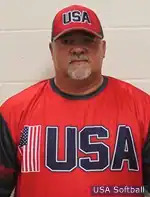
Steve Shortland
Steve “Pup” Shortland’s dedication to the sport of softball has extended across various levels, beginning first as a player in 1977 before the start of his coaching tenure 20 years later. Serving as Head Coach for the U.S. Air Force Men’s Softball team from 2002-2015, Shortland amassed eight gold medals and five silver medals during a 14-year span in addition to being selected to lead the Men’s Armed Forces twelve times in his coaching career. His valued coaching expertise reached the international level in 2009 when he was selected to lead the first-ever USA Softball Men’s Slow Pitch National Team, racking up seven Border Battle titles in his nine years as Head Coach while accumulating a 44-4 overall record in the annual international Slow Pitch event. Following his retirement from coaching in 2017, Shortland began giving back to the sport by conducting playing and coaching clinics across the world and has been instrumental in helping the European Softball Federation with their player development. Additionally, his involvement extends to the USA Patriots Board of Directors where he helps inspire and educate others while enhancing the health and welfare of veteran amputees.
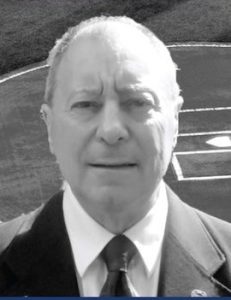
Mike De Leo
Loved and respected on and off the field, Mike De Leo exemplified what it meant to be a USA Softball umpire for more than 48 years. His skills coupled with his caring and passionate approach for developing the game propelled him to a successful umpiring career that began in 1970 and spanned through 2018 while serving in various roles including Metro Detroit Deputy UIC, Metro Detroit UIC and Regional UIC in addition to serving on the National Umpire Staff for 18 years. De Leo’s skills earned him the opportunity to umpire at six USA Softball National Championships in addition to serving as UIC for over 50 National Championships. De Leo is a member of the Medals Program at the Gold Level and the National Indicator Fraternity and is proud to have been inducted into the USA Softball Hall of Fame of Metro Detroit (2002) and the USA Softball of Michigan Hall of Fame (2022). Adding to his resume of accolades, De Leo received his ISF Slow Pitch Umpire certification as well as the Region 8 Award of Excellence in 1995. De Leo’s knowledge of the umpire program extended off the field as an instructor for more than 40 National Umpire Schools held in the U.S. as well as two international USA Softball Umpire Schools in Germany and Italy for the Armed Forces in 2007.
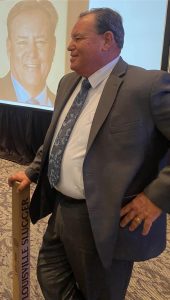
Jeff Hansen
One of the most successful umpires to ever be involved in the game, Jeff Hansen’s accomplishments speak for themselves while his character and leadership in the growth of the sport were admired by all he crossed paths with. With an umpiring career that spanned more than 20 years, Hansen was the guy you wanted on the field when the game was on the line – not only for his expertise of the rules, but because of the respect he earned from athletes and coaches. At the grassroots level, he called over 25 USA Softball of Nebraska State Championships, 12 USA Softball Mid-America Regional Championships and four USA Softball National Championships. His ability to wield the game led to an assignment at the 1991 Pan American Games, and when softball entered the Olympic Program in 1996, Hansen was the one to receive the call. His efforts in the USA Softball umpire program earned him his ISF Certification in addition to his selection into the National Indicator Fraternity. Following his umpire career, Hansen transitioned into administration roles where he served as UIC for various National Championships as well as for the USA Softball of Nebraska association.
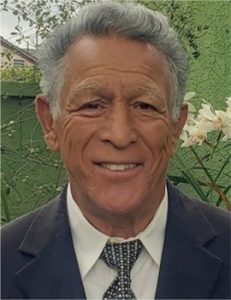
Al Savala
A long-time supporter of USA Softball, Al Savala has been contributing to the top Men’s Fast Pitch teams since the 1970’s. Having served as a sponsor for more than 20 USA Softball National Championships, Savala helped the Savala Painters to five Men’s Fast Pitch 45-Over National Championship titles during his tenure. His support to the teams he sponsored was what many consider an act that allowed the game to continue as funds, equipment and apparel were limited for teams who sought to compete at the highest levels. In addition to his sponsorship assistance, Savala was always a voice to be heard in the stands as his squad battled it out between the lines. His dedication and passion for the sport and the teams he’s helped over the years is a true testament to the success and growth of Men’s Fast Pitch.
NATIONAL SOFTBALL HALL OF FAME CLASS OF 2023
Doug Lindaman
Recognized for his dedication to the sport, Doug Lindaman will join the meritorious service category following a 37-year career on the USA Softball council, which included various appointments on the Hall of Fame Committee, the Men’s National Team Selection Committee, the Fast Pitch Playing Rules Committee and the Player Representative Committee. In addition to Lindaman’s committee involvement, he also served in various positions for the USA Softball national teams programs including Team Manager for the USA Softball Men’s National Team at the 1995 International Softball Federation (ISF) World Championship and the USA Softball Junior Men’s National Team at the 2008 ISF World Championship.
Joe Massaro
Selected for their experience in the umpire category is Joe Massaro and Jim Craig, both of which kickstarted their umpiring careers in the late 1970s and continued for a combined 80 years. Massaro began umpiring in 1979, which saw a career that featured seven national championships and the Women’s Major Fast Pitch championship game in 1996 and 2000. He also worked Men’s Major Fast Pitch and Slow Pitch, Women’s Masters Fast Pitch and Men’s Modified Pitch while attaining elite status, gold level in the medals program and being a member of the National Indicator Fraternity. Massaro’s contributions as an umpire also earned him selections into the ASA Union County Hall of Fame (2009) and the ASA New Jersey State Hall of Fame.
Jim Craig
Craig began his renowned career in 1978, which was highlighted with working as the Umpire-In-Chief (UIC) for 61 national championships and five international championships while serving as the committee chairman of the UIC Clinic from 2007-21. Known for not only his contribution on the field, but off the field as well, Craig contributed to the reformat of National Umpire Schools in 2018, which has proved to be a huge success for the USA Softball Umpire Program. His accomplishments have earned him various awards over the years, including the Merle. O Butler Award of Excellence and Region 2 Award of Excellence while also being inducted into three Hall of Fames – Metro Buffalo ASA Hall of Fame (2003), Western New York Softball Hall of Fame (2011) and USA Softball of New York Hall of Fame (2021).
John Stratton
Enshrined for his impact as a manager/coach, John Stratton garners over 40 years with the Raybestos/Stratford Brakettes program – 28 of which he has spent as the team manager, with more to come as he continues his tenure with the squad. Under his tutelage, the Brakettes have won over 2,300 games with a dazzling .917 winning percentage and 16 national championship titles. Leading many standout athletes over the years, Stratton coached Hall of Famers Joan Joyce and Sue Enquist – both of which have made their mark on the sport of softball across the globe.
Valerie Arioto
Earning her place among USA Softball legends, Valerie Arioto gained the Hall of Famer tagline after a long – and storied – career competing for the USA Softball Women’s National Team. Throughout her 11 seasons representing Team USA, Arioto helped the U.S. to 13 medals including four World Cup gold medals, three Pan American Games gold medals and two World Championship gold medals before capping her career with an Olympic silver medal at the Tokyo 2020 Olympic Games. Extending her impact beyond the playing field, Arioto served as an athlete representative on the USA Softball Board of Directors for various years where she played a key role in the growth and development of the sport of softball.
Sue Ilyes
The slow pitch category increases by three with the selection of Sue Ilyes, Monty Tucker and Ray Fleetwood – each of which demonstrated distinguished careers, including one of the top all-around players in the women’s game and two power-hitting legends from the men’s game. Ilyes spans a 33-year playing career for teams in the Pennsylvania area, including the York Barbellettes and the Lakerettes. A standout on various occasions, Ilyes earned 13 All-American honors – four of which came in back-to-back years – while helping lead her team to 26 national championship appearances and two national titles.
Monty Tucker
Known as one of the top hitters in the 1980-90s, Tucker slugged over 2,000 home runs during his career with over 100 tallied in a single season nine times during a 10-year span – including 413 during the 1987 season. His dominance at the plate earned him four All-American honors and honorable mentions to the 1980 and 1990 All-Decade Teams as well as the All-Century Team.
Ray Fleetwood
Another threat at the plate in the slow pitch game, Fleetwood blasted over 2,000 home runs in his 26-year career from 1969-1994. With over 100 home runs hit in a single season for 11 consecutive years (1971-1981), Fleetwood earned four All-American honors and was named to the 1970 All-Decade Team in addition to an honorable mention to the All-Century Team. Additional honors include being named the Smokey Mountain Classic Co-MVP and OK ASA Co-Player of the Year in 1975.
Sikorsky Aircraft
Sikorsky Aircraft earned its place in the National Softball Hall of Fame in the newly added team category after fielding one of the most dominant Men’s Slow Pitch teams for over 50 years. Sikorsky Aircraft qualified for the national tournament 46 times with 19 titles, while also finishing as the runner-up eight times and finishing in the top five 35 times. Led by Hall of Fame member Ken Clark, Sikorsky Aircraft had over 50 players earn All-American honors totaling over 200 selections.
Mike Bolen, recognized for his exceptional skill, sportsmanship, and contributions to softball, will forever be honored in the National Softball Hall of Fame. A powerhouse hitter of the 1970s and 1980s, Bolen was known for his versatility on the infield and his remarkable consistency at the plate. In 1981, he led the nation with 333 home runs, later reaching a career-high of 435 home runs in 1986, including tying the record for eight homers in a single game. Playing for top teams like Jerry’s Caterers and Steele’s Sports, Bolen amassed over 2,500 home runs with a career batting average exceeding .725, including an impressive streak of 27 hits in 28 at-bats.
NATIONAL SOFTBALL HALL OF FAME CLASS OF 2024
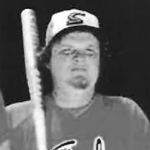
Mike Bolen
Mike Bolen was one of the best pure hitters that played the game in the 1970’s and 1980’s. He was a gentle giant who could play any infield position. He was known for having immense power as well as the ability to hit for high batting averages on a consistent basis. In 1981, he hit 333 home runs to lead the country and, on his way to a career high of 435 home runs in 1986, not to mention tying the record for most home runs in a game that year (8). Mike played on some of the top teams throughout his career – Jerry’s Caterers from Miami, Florida and Steele’s Sports out of Lima, Ohio. Mike was considered a hitting machine who amassed more than 2500 home runs along with a career batting average of over .725. At one point, Bolen’s bat was so hot, he found a 27 for 28 streak that included 18 straight hits.
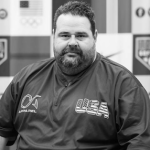
Don Cooper
Don Cooper’s exceptional coaching career has spanned both women’s and men’s USA Softball teams, earning him numerous national championships. He served as head coach for the women’s slow pitch national team six times, including the first-ever Border Battle team in 2017, and compiled an impressive 6-1 record in Border Battle competitions, including the 2020 Slow Pitch Showdown. Cooper also led the 2013 men’s Slow Pitch National Futures team and gained immense respect from players, coaches, and opponents alike. USA Softball selected him to lead slow pitch clinics in Europe to elevate their programs, highlighting his role as an outstanding coach and ambassador for the sport.
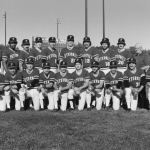
Peterbilt/Pay N Pak
The Peterbilt/Pay N Pak men’s fast pitch softball team dominated the field, winning five national titles. They claimed their first championship in 1980 in Decatur, Illinois, followed by titles in 1982, 1985, 1986, and 1987 under different banner sponsors. Initially known as Peterbilt, they later competed as Pay N Pak, securing their final three championships. In 1986, they made history by becoming the first team to win the triple crown, capturing the ASA Nationals, ISC Nationals, and the Olympic Sports Festival titles. With a strong culture of excellence instilled by their sponsors and coaches, Peterbilt/Pay N Pak set the standard for championship-level play both on and off the field.
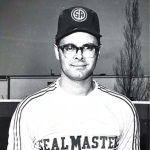
Charlie Richard
Charlie Richard’s legendary career in men’s fast pitch softball spanned over three decades, starting with a national debut at the 1957 men’s tournament where he allowed only one hit. From 1960 to 1969, he played for the renowned Sealmasters team, winning three ASA national titles with an impressive 230-35 record and a 0.56 ERA. Richard also represented the USA men’s national team, helping secure gold medals in the first two ISF World Tournaments in 1966 and 1968. He was named MVP of the 1966 games and pitched the first-ever perfect game in ISF history in 1968. Throughout his career, he threw five more perfect games and 21 no-hitters, earning recognition as the top left-handed pitcher of his era and later becoming a dedicated advocate for men’s fast pitch softball.
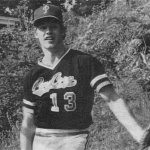
Pete Sandman
Pete Sandman, a highly respected fast pitch player from Sioux City, Iowa, excelled at state, national, and international levels. While playing for Penn Corp, he earned First Team All-American honors at the 1986 Men’s Major Fast Pitch National Championship and was named to the Third Team in 1988. Sandman also represented Team USA at the 1987 Pan American Games, where he helped secure a silver medal. Additionally, he competed in the U.S. Olympic Festival in 1987, 1990, 1991, and 1993, winning two gold medals, one silver, and one bronze, solidifying his legacy as an elite player on the world stage.
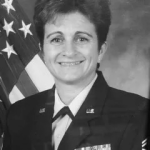
Cheryl Trapnell
Cheryl Trapnell is regarded as one of the greatest players to ever represent the Armed Forces in softball. She began her career with the United States Air Force women’s softball team in 1981, continuing until 2005. Known as the best shortstop of her era, Cheryl had the complete offensive and defensive skills to lead any infield. Her achievements include being named First Team All-American ten times between 1989 and 2002, primarily at the A Major level. She was also a key player on six national championship teams and played a significant role in the growth and development of the sport before transitioning to a successful coaching career.
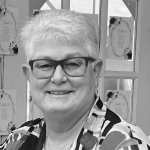
Jody Trimmer
Jody Trimmer is a legendary figure in women’s slow pitch softball, having competed in 24 Women’s Major/Open Division National Championships. A 12-time All-American, she was part of two ASA Major National Championship teams and five national runner-up teams. Her success continued in the Women’s 35 & Over division, where she won six consecutive national titles with a remarkable 31-2 record, earning four more All-American honors. Jody also competed in the Women’s 50 & Over and 55 & Over Major Nationals, capturing one national title and a runner-up finish. A hometown star from York, Pennsylvania, Jody’s illustrious career in the famous York Softball League has placed her among the top names in the sport’s history, alongside legends Christan Dowling and Sue Ilyes.
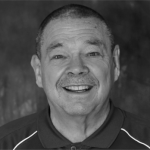
Mike Wolf
Mike Wolf has officiated at the highest levels of slow pitch softball for ASA, including the Men’s Major and Men’s Super National Championships. A standout achievement in his career was being selected to umpire seven national championships, working the championship game in six of them. Since 2004, Mike has served as UIC (Umpire in Chief) for USA Softball of North Dakota, after years as a deputy UIC. Beyond his national accomplishments, Mike’s passion for softball shines through his 30-plus years as the tournament director and UIC for the annual McQuade Charity Softball Tournament. His dedication to the game and umpire program is felt both nationally and locally.
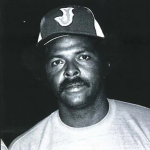
Andrew Young
Andrew “Mighty Joe” Young was one of the top slow pitch hitters of the 1970s and 1980s. A dominant force on the field, he competed in eight national championships, leading his teams to three national titles and one runner-up finish. Mighty Joe earned three All-American selections, including two first-team honors, while playing for elite squads like Nelson Painting, Steele’s, and Jerry’s Catering in the Men’s Open and Super Divisions. In 1980, he set the all-time single-season home run record with 337 homers, driving in 764 runs and hitting an impressive .716. Known for his power, Mighty Joe was a player no team wanted to face in clutch moments!
NATIONAL SOFTBALL HALL OF FAME CLASS OF 2025
Charlotte Cates – Slow Pitch
Christina Drumm – Umpire
Hank Garris – Slow Pitch
Jason Kendrick – Slow Pitch
Kelly Kretschmann – Fast Pitch
Chris Miljavic – Fast Pitch
John Miller – Meritorious Service
